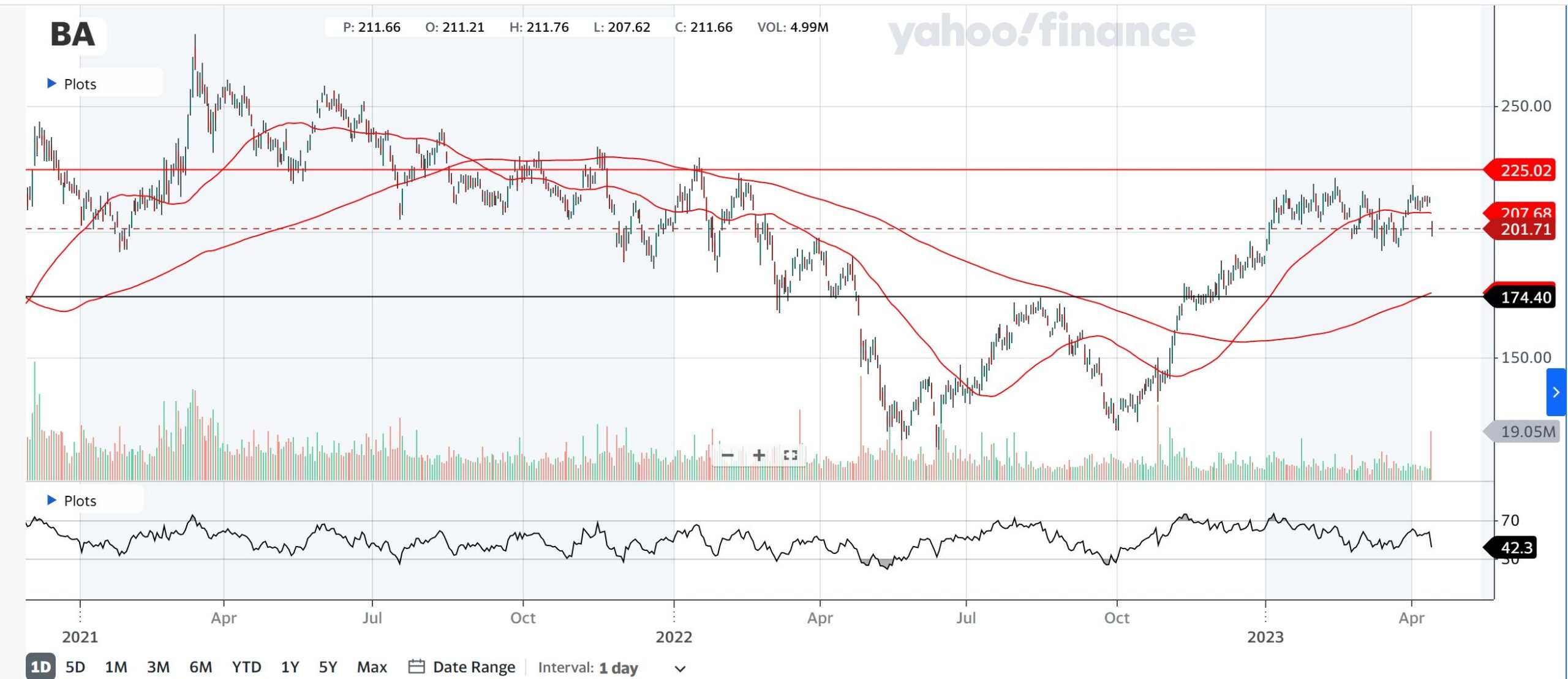Boeing

Fundamental Analysis
The Boeing Company is an American company that develops and sells civil and military aircraft, helicopters, satellites, and provides supporting software for its products. The company is one of the largest manufacturers and suppliers of aerospace equipment in the world.
It was founded in 1916 by William Boeing in Seattle, Washington. One of their largest factories still stands there today. The company’s headquarters and management are now located in Arlington County, Virginia, which is across the street from Washington D.C. This is to keep the company close to its major customers, such as the U.S. Department of Defense.
An important milestone came in 1997 when the company merged with McDonnell Douglas.
Boeing is divided into 4 organizational units: Boeing Commercial Airplanes (BCA), Boeing Defence, Space and Security (BDS), Boeing Global Services (BGS) and Boeing Capital.
In 2018 and 2019, two accidents involving Boeing 737 Max8 aircraft damaged the company and its name.
During Covid, most of the aircraft were grounded, supplier-customer relationship issues emerged and production fell to a low. Problems with commercial aircraft production persist to this day.
The company’s main product is the civil transport Boeing 737 family.
Results
The company reported 2022 results at the end of January 2023. The main positive indicator, according to management, is the increase in free capital from negative to +3 billion USD. The company’s free capital is in the black for the first time in 3 years.
The company’s turnover increased by 7% compared to 2021. In 2022, it was USD 66,608 billion (2021: USD 62,286). Breakdown of turnover by section:
Section Turnover 2022
BCA USD 25.8 billion
BDS USD 23.1 billion
BGS USD 17.6 billion
Boeing capital USD 0.199 billion
BCA has a backlog of more than 4,500 (including more than 3,600 737 MAX family and 505 787 family orders) orders of $330 billion
BDS has an order backlog of $54 billion
BGS has an order backlog of $19 billion.
According to analysts, Boeing’s share price is undervalued by 20-40% relative to the current outlook. However, the net calculations do not take into account problems in the production chain.
Technical analysis
The stock has been on an uptrend for several months. The moving averages crossed back in late 2022 and the stock has been steadily rising since then.
The RSI is in the neutral zone.
The prices around $175 and $225 act as long-term supports and resistances, we need to count on their possible influence on the development of the share price.
Conclusion
Boeing stands and falls as it succeeds in delivering its key product, the Boeing 737 Max family. Boeing is now producing 31 MAX aircraft per month, and wants to get to 50 per month by 2025-2026. It is the ability to increase production of this key product that will have a major impact on the stock price. If they can increase production, the share price will go up. If they fail to deliver on their own plans, the share price could go down.
The company has balanced sales from the BCA and BDS sections. This is due to the low production of the 737 MAX. With a backlog of